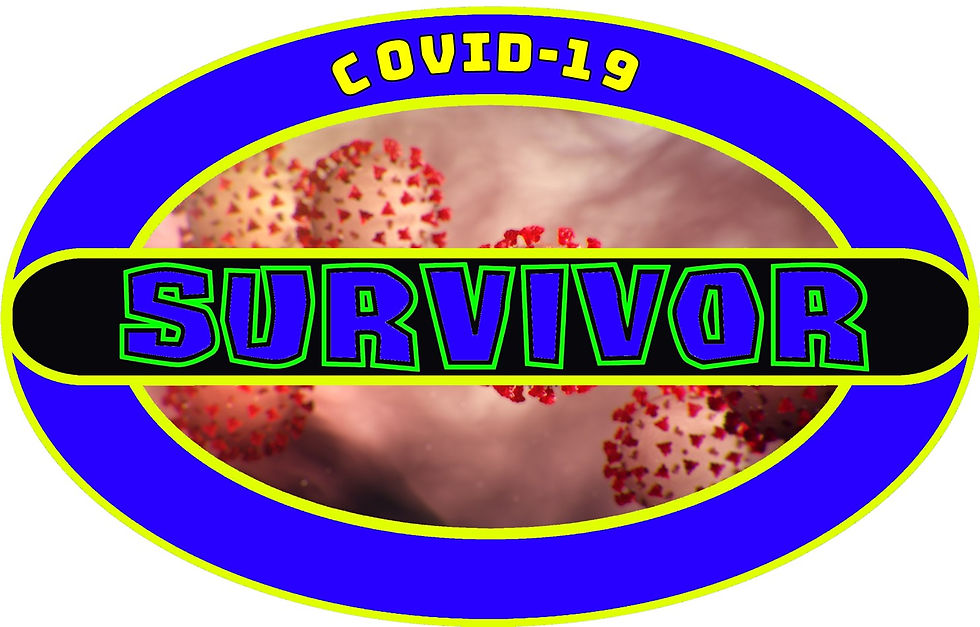Surviving Covid-19 part 3 (online exclusive)
- Jason Flanagan, Teacher at High Point High School
- Apr 21, 2020
- 3 min read
Updated: Jun 26, 2020

Read the rest of the series here.
Part 3 of 5: How nearly dying saved my life
Before all this happened, I had to carry a jug of water with me everywhere I went because I was always thirsty. I wondered if I had an issue. Turns out I did, which made my most recent dealing with COVID-19 that much worse. After all, how does a 39-year-old with no lung or heart disease or other apparent health issue get ravaged by COVID-19?
With a secret underlying condition.
When I came out of my coma, the doctor asked me questions to make sure I was still cognizant. I had to assure them that my nystagmus (the uncontrollable movement of the eye) was something I was born with and not a result of the coma. Then he asked me, “Do you have diabetes?”
“No,” I said. “I might be pre-diabetic, but certainly not full-blown diabetic.”
“Well,” he said, “you are now.”
I forgot what they said my blood sugar reading was, but it was insanely high. My A1C currently stands at 12.5. If that doesn’t mean anything to you, a normal person without diabetes should be between four and six. The charts only go to 14. And this is the average over the last three to four months.
Apparently, I had raging type 2 diabetes for quite some time and didn’t know about it. And from what I’m reading now, diabetics are susceptible to COVID-19.
What probably made my story so appealing in a newsworthy sense is that I appeared as an anomaly, a healthy, relatively young person being ravaged by the coronavirus. But I wasn’t healthy. I had some serious issues that I ignored and/or was ignorant of. I should have had a blood test done earlier to discover that I was diabetic. I should have monitored my blood pressure more because it was near hypertension level.
Was it not for COVID-19, I would have had serious problems later down the road. Sure, I wish I could have known about it without having to rebuild my lungs and pretty much the rest of my body. I could have had the diabetes under control (which I’m doing now) and maybe the virus wouldn’t have been so bad.
Now my daily regimen consists of taking my blood sugar reading in the morning and night. I take two pills and one insulin shot each day for diabetes. I take a pill for cholesterol. I take another pill for high blood pressure. I also take baby aspirin everyday to ensure my heart stays strong (nothing wrong with my heart, but just to make sure, the doctor said).
The sad thing about this is that I have health insurance and the means to see a doctor. I only went when something was wrong, like my knee hurting or a stomach virus. I failed to get yearly check-ups because I largely ignored my health. Meanwhile, communities of color are dying of COVID-19 at higher rates than whites because of so many with underlying conditions like diabetes, but those communities lack affordable and accessible healthcare and live in food deserts. There is really no excuse for me.
Someone asked me if my experience has me thinking differently, and it has, but not in the way most think. Yes, I am grateful that the staff at Frederick Memorial Hospital allowed me to overcome a disease that is currently the No. 2 killer in this country so far in April. But the coronavirus has exposed other health issues that I’ve neglected for too long and now have a desire to correct.
I’m healing very well. No more therapy because I can stand and walk, though not for long. I obtained pressure wounds on feet due to them being pressed against the end of the hospital bed. Those are healing well, and the podiatrist doesn’t need to see for some time. My breathing is getting better each day, though that will take time.
The doctors and nurses gave me another chance at life. It’s now up to me to prolong that chance and make it the best it can be.






Comments